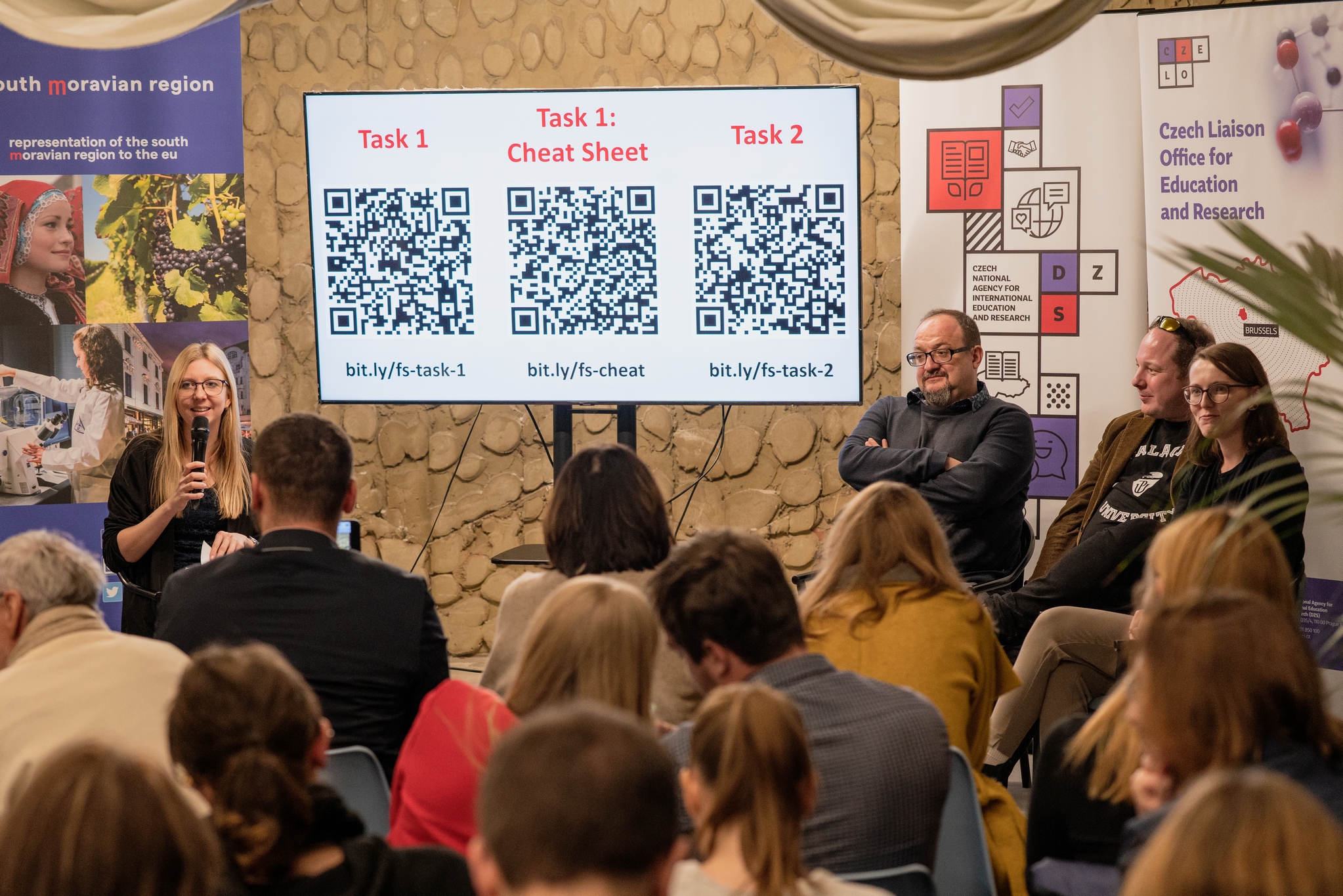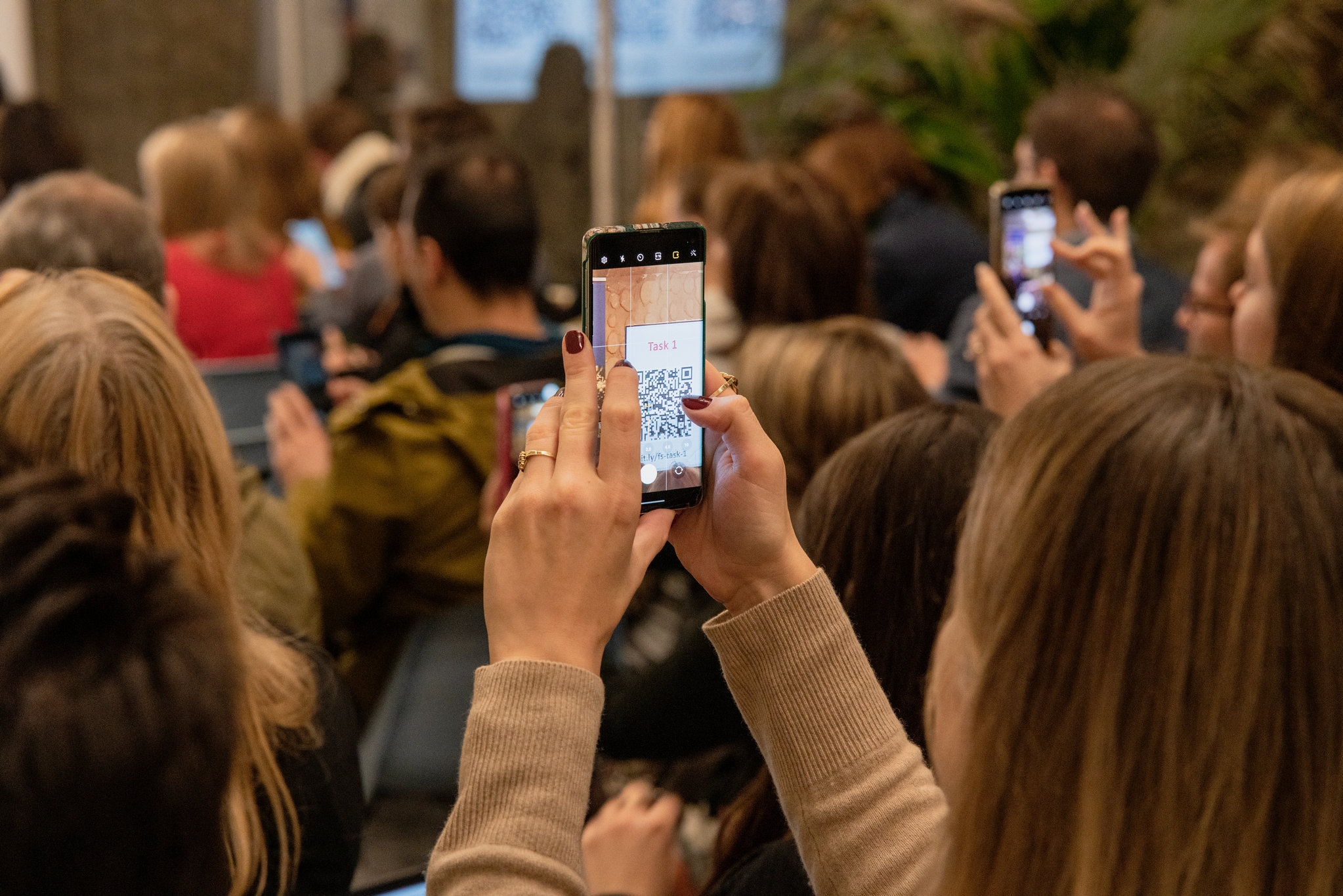Czech experts discussed disinformation and education in Brussels
The discussion evening EduCafé on the topic of "Combating Disinformation through Education" attracted 60 people.
The guests of the last EduCafé were Josef Šlerka, Kamil Kopecký and Lucie Čejková. In the industrial premises of STAM Europa in the centre of Brussels, they discussed the role that education, teacher training and media education can play in the fight against disinformation. The discussion was moderated by Aneta Zachová, editor-in-chief of the news server Euractiv.cz. In the second part of the evening, the participants tried to escape disinformation on their own by taking part in a shortened version of the Fakescape game intended for secondary schools.

Josef Šlerka, the Head of New Media Studies at the Faculty of Arts at Charles University, introduced disinformation in a broader social context. He pointed out that disinformation is often linked with two other phenomena – conspiracy theories and populist framing (rhetoric). This results in a dangerous combination that complicates the solution of these problems. He stressed that education alone is therefore not enough to defeat disinformation, but it is a powerful weapon to contribute to this fight. Above all, education should strengthen critical (scientific) thinking and media literacy.
Kamil Kopecký, an associate professor at the Department of Czech Language at the Faculty of Education of Palacký University and the Head of the Centre for the Prevention of Risky Virtual Communication (PRVOK), presented the results of several studies tracking the attitudes of Czech teachers towards media education in schools or their ability to recognize fake news. He pointed out, among other things, that although 91.6 % of teachers agree that media education is important, up to 48 % of them do not think it is necessary to devote more time to it in the classroom (Czech teachers in the world of media, 2021).
After that, Lucie Čejková, a lecturer of the Fakescape student association and a researcher at the Department of Media Studies and Journalism at the Faculty of Social Studies of Masaryk University, took the floor. She introduced the participants to the successful Fakescape project, which seeks to increase media literacy and cyber security skills among pupils, students and adults using the gamification method. She also prepared a shortened version of a high school-level game for the participants. After the debate, they turned into journalists and found themselves in a virtual country called Fakeland, where the presidential elections were approaching. Their mission was to complete several tasks and discover which candidate is trying to cancel the summer holidays.

During the discussion, the guests also focused on whether media education and the fight against disinformation should be a topic of teacher training at faculties of education. They shared practical tips for teaching and debated political support at the national level. They also discussed whether this problem can be addressed at the European level, touching upon the new European Commission's Guidelines for teachers and educators on tackling disinformation and promoting digital literacy.
Have a look at the photo gallery (photos taken by Martin Palko).
The discussion evening was organized by the Czech Liaison Office for Education and Research in Brussels (CZELO) together with the Representation of the South Moravian Region to the EU in Brussels (KJMK) on 14 November 2022. The next debate in the EduCafé series is planned for spring 2023.